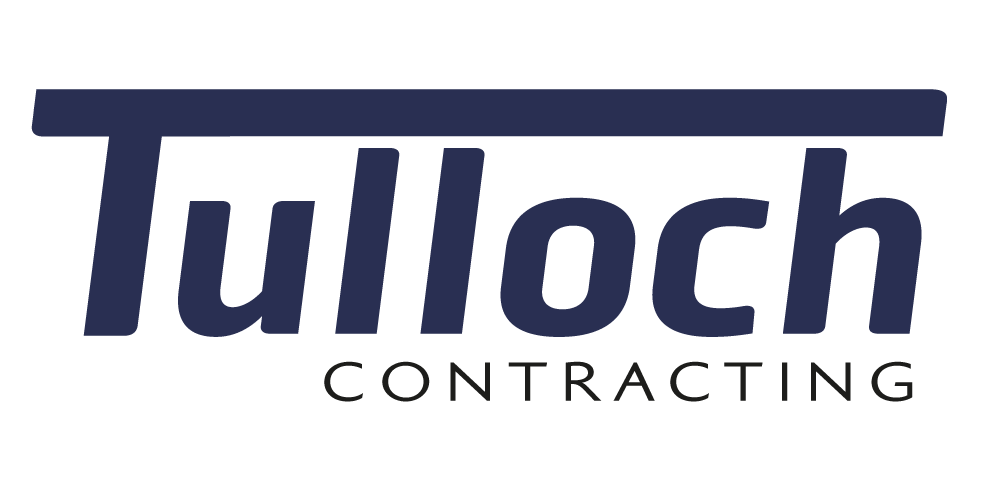New farming practices originate from two sources:
- Government policies and regulations that are established to ensure the best practice can be promoted and even enforced for the good of the society, land and people
- Our growing understanding of nature and what’s good for the land
Even though many farming practices feel like they are thousand years old, there is always something new. This article covers hot topics about
- soil and water load
- new government regulations about freshwater management
- Direct drilling as a practical example
- new machinery with groundbreaking technology
Soil & Water Load
There are different soil and water load management plans coming into action in New Zealand in regard to what can be done to soils and the amount of soil damage you’re allowed to do.
These are aimed to change farming practices because these government regulations to soil damage will ensure greater control of the use of soil with the aim for soil damage to stop or be considerably reduced.
Tulloch Contracting team has an understanding of what these required changes are and how they can be implemented, so we can provide practical help to farmers in two areas:
- help farmers to understand the reasons for the change and what they need to do about it.
- help farmers to make it happen because many services we provide are already in line with proposed changes.
The truth is, not every farmer is well equipped with knowledge and machinery to adhere to required changes and it can be a difficult and painful process, which can be made easier with Tulloch Contracting advice and help.
As a company, we put a lot of effort into learning how to make a transition from current soil and water use on the farm to new required regulations. These probably will require a change in how farmers operate and this change is not always an easy one.
We can talk to farmers about changes, but we can’t make the decision to change their practices for them. They have to make an informed choice on their own.
Once they make a decision and commit to change, we then can help to make it happen. For example, to stop soil damage we can do the drilling of the crops instead of cultivating as many are still doing. In a way, almost every service we provide decreases damage to the soil and allows better use of it.
Fresh Water Management Rules
The Government proposed more stringent requirements to enhance New Zealand’s waterways, cracking down on farming practices and increasing regulation. The health and wellbeing of water will be put initially when making choices, “offering necessary human needs, such as drinking water, will be 2nd, and all other usages will follow”.
It is intended to enhance water quality for rivers, lakes and wetlands within five years and fix them within a generation. It will also set higher standards for swimming, with a special effort towards lowering contamination.
The propositions also include procedures to enhance farming practices, where required, to stop things from getting worse by ensuring all growers and farmers have a strategy to manage dangers to freshwater, by 2025.
New freshwater guidelines naturally will affect some existing farming practices.
The plan is to tightly limit any more intensification of land use through interim measures till all areas have working freshwater management plans.
From June 2020 changes such as brand-new irrigation or conversion to dairying will only happen where there is evidence it will not increase pollution.
In catchments with high nitrate/nitrogen levels, there will be a reduction in nitrogen loss within 5 years and there will be more fencing and wider problems to keep stock out of waterways.
Standards for intensive winter grazing, feedlots, and stock holding locations will likewise be applied.
The bar has been likewise raised on freshwater community health by presenting new qualities and requirements to secure threatened types and habitats, which will consist of reducing soil loss, and nutrient run-off and investing in upgrading wastewater and stormwater facilities.
The plan sets out that land and water resources will be handled in a way that assists indigenous species to thrive. It aims to offer fish passage, so that fish that require access to the sea to breed will face fewer barriers. There will likewise be enhancements to setting minimum water flows and reporting on water usage with much better management of water allocation within the existing system.
In an effort to protect rural and city streams and wetlands, there will be no more draining pipes or advancement of wetlands. Any existing streams in rural and urban areas will not be piped or filled out unless there is no option.
The sheep and beef sector also has concerns about the proposals. Beef + Lamb New Zealand (B+LNZ) stated the strategies to lock down current land uses would have an out of proportion result on the majority of sheep and beef farms that are low input, extensive systems with a light touch on the environment.
TIMELINE
2019: Support and advice for farmers.
Late 2019–early 2020: Government makes final decisions.
2019–2020: Ongoing work on allocation of allowances to discharge nutrients.
June 2020: Implementation of new requirements.
2020: Further consultation on wastewater and stormwater regulations.
2025: All councils have plans to implement a new National Policy Statement for Freshwater Management.
Regional councils around NZ are working on new rules around farming, and every farmer has to understand how these new rules may impact what and how they farm on their block.
Here is what you truly need to know.
- This is all about preserving and restoring the quality of our fresh water. Following the cases of pollution in waterways and lakes including individuals getting ill mostly due to nutrition run-off from fertiliser and animals. As a result of Government action, brand-new standards around farming have been introduced. Want to know more? Check this out: www.mfe.govt.nz/fresh-water
- Local councils now have the responsibility to come up with new guidelines that are specific to the land, land usage and waterways in their areas. This has to be done in conjunction with local and regional farmers and industry groups, local iwi, and specialists by 2025. While it will mostly affect dairy farmers, others too will be required to reveal what they are doing to reduce their contribution to damaging run-off from their homes into waterways.
- Depending on the decisions of your local council you might be required to take very specific actions. For example, depending on the size of your farm and proximity to fresh water sources you might have to fence off waterways and wetlands, keep files on nutrient use, or look at how to handle effluent or rubbish pits.
If you are a member of Federated Farmers or another industry group, the best step is for you to contact your local council to discover what the new rules will be. While the updates you receive from the council might appear nothing to do with you, we urge you to pay special attention because there may be crucial information, recommendations or requirements to the way you farm.
Depending on the requirements you will have to make changes or improvements on your farm, Tulloch Contracting is well equipped to help make it happen.
Direct Drilling
Many of our services are already geared towards being gentler with soil, reduce damage and ensure better use of soil and crops.
An interesting example is the use of direct drilling instead of traditional cultivating.
Did you know that in the process of direct drilling only 5-20% of soil surface area is cultivated?
The goal of direct seed drilling is to put the seed directly in the residues of the previous crop with minimal soil interruption. It offers a variety of benefits depending on soil conditions.
Not only does direct drilling offers less soil disturbance in the process, but it is also often more cost-effective than cultivation and is common practice in countries.
New Machinery with ground-breaking technology
Part of the times when agriculture machinery was simply mimicking and automating exactly what people do. Today manufacturers worldwide are seeking ways of designing machinery that can do a better job of saving time, money and effort. Plus, give more respect to the soil and land.
This new machinery can no longer be operated by anyone and require a specially trained technician to do the job properly. That is why we invest heavily not in acquiring new machinery but also in training our people.
Tulloch Contracting is always on the outlook for proven new machinery so that they can provide better service to Wairarapa farmers. Here are just two examples of really wonderful machinery that makes farming a greater delight.
Multi Bale Baler
The 870 Big Square Baler is a clever system of stacking smaller conventional size bales into one big square bale.
You want the large bales in the field, but small bales in the barn for efficient handling in each scenario. KRONE multi-bail is the solution. This baler packs up to nine small bales into one large square bale, with mechanical handling and collection. This then gives you the convenience of the conventional bale at feed out.
KRONE BIG Pack is highly productive, efficient and reliable. It is capable to produce bales from straw, hay and silage that are as hard as rocks and keep their shape.
The first big pack rolled off the assembly line back in 1993 today KRONE is building the most comprehensive model range that offers the right baler for any job and condition.
Tulloch Contracting invested in the latest generation of the KRONE Multi-Bale. This machine combines proven engineering design with innovative features.
Strip-Till Maize Planting Machine
Strip-Till Maize Planting Machine is one more piece of machinery we use a lot because it is designed to ensure sustainable farming. Imagine that it can do three things at once: cultivate + fertilise + plant. All in one go!
The Strip-Till Maize planting machine offers massive time saving, but it is also a really practical way to reduce soil damage by running machinery just once to perform three operations, working only the strip of paddock where the plant will grow.
On top of that planting and fertilizing that way allow us to have better holding capacity for water alongside other benefits.
There is no secret that we are happy to use innovative machinery. Through our close contacts with Tulloch Farm Machinery, we have got to test and help develop new equipment for suitability for the New Zealand market, this means our clients get the benefit of our expertise and are the first to reap the rewards of any new technology.
In Summary
Since 1988, based on the experience of two generations of contracting, Tulloch Contracting is offering top-notch service to the greater Wairarapa region.
We aim to build strong relationships with each of our clients so that they can experience how the job gets done while they can focus on the day-to-day running of the farm.
Tulloch Contracting is all about applying modern equipment to help farmers get better results at lesser cost and the smallest environmental footprint possible.
That is why we are passionate about using new innovative equipment. In fact, due to our close contacts with Tulloch Farm Machinery, we are privileged to test and assist develop brand-new equipment suitable for New Zealand conditions. Naturally, our customers get the benefit from our involvement in machinery development.
When new farming practices or new Government regulations are changing what farmers can and cannot do, we can help farmers to understand the merits of the changes and offer solutions to make it happen.

